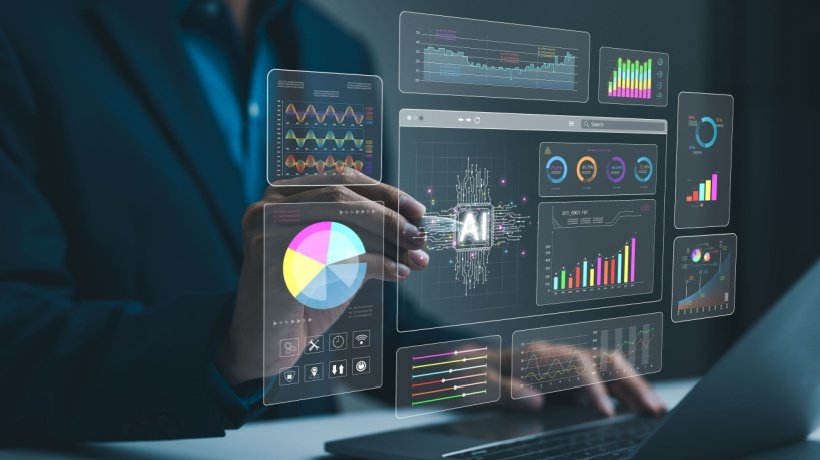How AI Will Drive Project Management In The Future
As the business environment becomes more demanding, the challenges in project management become more complex. The good news is that technology is also changing and bringing solutions to some of today's biggest challenges. In this case, we're talking about AI in project management and how it can help employees automate tasks and processes to finish projects on time and efficiently. After all, there's only so much that traditional approaches can do for you. Although useful, the good old project management ways are often time-consuming and susceptible to errors, so there's a need for innovation and change if you want your business to keep up with the latest trends in the field. So, join us as we explore how AI can interfere with project management and bring a fresh perspective to how things are done in your company.
The Uses Of AI In Project Management
Automation
No one likes handling tedious tasks, and fortunately, there are ways your employees can avoid that. AI-powered management tools are always willing to take on responsibilities like scheduling meetings, creating reports for managers, or sending email reminders regarding a project's approaching deadline. By checking each team member's calendar and schedule, the software assigns tasks that resonate with their availability during the workday, thus protecting their time and energy while ensuring that they will focus only on non-repetitive activities.
Predictive Analytics
Every project encounters risks, no matter how well it's been planned. Whether it's a financial, technical, or operational risk, project managers know firsthand how important it is to be prepared for every danger that may come their way. Although up until now managers relied on their instinct and experience to foresee potential problems, AI predictive analytics can step in and aid the process. These analytics rely on Machine Learning and Big Data to predict trends and present project managers with possible risks so they know how to act. AI systems can even warn employees when an issue is about to arise, giving them plenty of time to take action.
Resource Allocation
Project managers have to deal with their fair share of resources, like employees, equipment, budget, and of course, time. With deadlines continuously pressing them, they must utilize the right resource management tools to find the perfect balance between allocating these resources. It's easier when you have to deal with one project, but what happens if you have to juggle multiple simultaneously? AI comes into play once again by optimizing the process. The system gathers data like past projects, completion rates, employee skills, and available equipment, then recommends how to distribute work. For example, it could recommend assigning tasks to specific team members who have the skills to complete them quicker, or postponing a project until the equipment needed to finish it is available again. This ability to manage resources efficiently is a critical competency for anyone pursuing the project manager career path, as it ensures that projects are delivered on time and within budget.
Project Monitoring
Real-time project monitoring and reporting is a big deal in project management because it wasn't possible until recently. Back in the day, project managers kept track of a project's progress by receiving once-in-a-while reports that were often outdated by the time the report was in the manager's hands. However, AI systems process data in real time, providing managers with timely insights and alerts that will allow them to make the necessary changes on the spot. By taking into account information such as deadlines, schedules, or how a team completes tasks, the system can immediately showcase a project's progress at any time.
The Benefits Of AI In Project Management
Efficiency
We talked about how AI can handle repetitive tasks but not about what this means for a team's productivity. Apart from freeing employees' time and allowing them to focus on more important aspects of a project, it also reduces errors. It's normal for people to make mistakes when they're swamped with work, but an AI system can automate processes with accuracy. This way, projects are completed on time because there are fewer errors that cause delays and cost resources. Additionally, when tasks are automated, teams can take on many more projects and finish them on time since AI acts like many additional employees working towards the same goal.
Better Decision Making
A person can quickly become overwhelmed when analyzing lots of data, but that isn't the case with AI. An AI system can effortlessly process vast amounts of information and deliver insights that are easy to read and base your decisions on. For example, it can analyze how your marketing team performed on past projects and show you where they usually struggle. Then, it's up to you to decide how you'll proceed and what you'll adjust. The same applies to real-time reporting. The system will alert you if, for instance, your project has fallen behind on time, and you get to act accordingly based on facts rather than instinct.
Cost Reduction
It's not just costly errors that are avoided when using AI for project management. AI systems also reduce the cost of hiring new employees and alleviate some of the workload because they can handle many repetitive tasks. From customer support inquiries and document organizing to scheduling meetings, there's no need to expand your team if you can't afford it. Additionally, wisely allocating resources can save you from overspending, as you'll get the chance to immediately know which employees can ace certain projects. Similarly, you won't spend money determining which equipment is best because you'll already have the insights to guide your decisions.
What To Consider
Data Privacy
Data in project management usually comes from project plans, records, financial documents, and even collaboration tools. This data can be susceptible to breaches and other security dangers that jeopardize your business's reputation. Moreover, there may also be hacking attempts on your project management tools in order to gain unauthorized access to sensitive information. This is why you should implement strong data encryption and anonymization with strict access controls. On top of that, make sure you comply with regulatory laws and secure a robust tech support and legal team that can come to the rescue if a breach occurs.
Integration
It's not always easy to implement an AI tool in your project management system, especially if you've been using older software for your processes. When deciding to combine the two, check for compatibility. Finding an AI program that functions properly when integrated with your existing stack is easy; the hard part is finding tools that complement each other and enhance your operations. So, consult with your IT team and check if your current systems can handle the amount of data that AI generates, if they can support the increased workload that AI will bring, and if there are training options so your staffers can easily get the hang of your new software.
Ethics And Biases
AI systems get trained on past data that can carry biases, thus producing problematic results. For instance, your AI-powered project management program could assign tasks to team members based solely on gender, race, and other biased criteria. This would hurt not only your teams' performance but also the outcome of your projects. To navigate this, ensure that the data you use to train your AI is qualitative and diverse. Additionally, prioritize transparency in the way you use those systems. This means explaining how AI makes decisions and allowing your workforce to intervene when needed to prevent ethical issues from arising.
Conclusion
AI acts like an extra pair of hands in the case of project management, ready to assist your teams with their mundane tasks and offer solutions before problems arise. Embracing this technology can give you a competitive advantage even in the most demanding industries. AI can't do wonders on its own, though. Your company needs to welcome change and prepare its workforce by investing in training on AI tools and fostering a culture of continuous learning.








